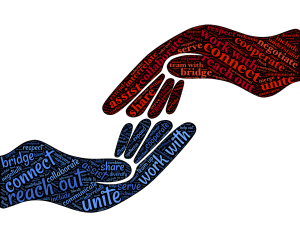Scaling to the U.S. Market? Time to Sweat the Small Stuff
May 9, 2019It’s easy for international CEOs who are scaling to the U.S. market to get completely absorbed by tangible tasks like fundraising, customer validation, and team building.
 While these milestones are fundamental to any U.S. market entry endeavor, there remain less tangible, “softer” tasks that scaling CEOs must master in order to achieve success. Tasks like fitting in culturally and building local networks of support.
While these milestones are fundamental to any U.S. market entry endeavor, there remain less tangible, “softer” tasks that scaling CEOs must master in order to achieve success. Tasks like fitting in culturally and building local networks of support.
In our recent blog series reflecting on our conversation with Priscila Bala, Head of the New York Office for Octopus Ventures, we covered best practices for internationally scaling firms related to fundraising, team building, and market testing.
We concluded our conversation by discussing the less tangible prerequisites to successful scaling, such as bridging cultural divides and how to compensate for the absence of a business network.
Learning in context
People often joke that the U.S. and the UK are separated by a common language. In the context of scaling to the U.S. market, this typically means that companies misinterpret shared language as shared business culture and as a result fail to account for the vast array of small but critical differences between the two countries.
Priscila suggests that it takes several visits to the U.S. over an extended period of time to actually appreciate its cultural differences.
“I like to encourage entrepreneurs to forget everything they’ve learned about the U.S. and pretend they’re expanding to China or Japan. I ask them:
- How would you behave?
- What would you take for granted?
- What would you question?
- What would try to learn?
Because the U.S. feels familiar, people skip that step of recognizing that it’s an incredibly different culture.”
From how informal Americans can be in conversations, to the value of small talk, and to predicting next steps in a negotiation, cultural differences are best learned in context and that will require time on the ground.
As Priscila reminded our listeners, the U.S. itself is a culturally diverse place. From doing business in New York to Los Angeles, foreign companies report having vastly different experiences with U.S. funders, service providers, and contractors based on differences in pace, formality, and perceived friendliness.
Saving time and money
The ability to understand the culture of the country you are aiming to scale into is more than just a “nice to have”. It can easily save you time and money when building relationships that lead to sales.
 Priscila points out that while B2B Europe is still very relationship driven in terms of how it manages sales and contracts, the U.S. tends to be more value and criteria driven.
Priscila points out that while B2B Europe is still very relationship driven in terms of how it manages sales and contracts, the U.S. tends to be more value and criteria driven.
“Buyers do their homework and if you don’t meet those criteria, it doesn’t matter how nice you are. What you don’t want is to misread a situation and spend a lot of time spinning your wheels with contracts or conversations that are not going to happen.”
The key to building local networks
Local networks provide companies powerful insight into market trends, policy changes, and in some cases, a reliable stream of new customers. Foreign companies entering the U.S. market lack these networks and the unique benefits they offer.
The key to making up for this loss, Priscila suggests, is to build the type of team that is both aware of the culture and skilled in identifying and forging strategic relationships—the type of relationships you might take for granted in your domestic market.
“It’s critical to have people on your team who are open to the challenge and understand how to build alliances, ask the right questions, and get under the skin of what’s really happening. Ultimately this is the missing link for many scaling firms.”
The role of relationships in U.S. market entry is complex. On one hand, in the B2B space, foreign firms may feel that U.S. deal-making underemphasizes the role of relationships and relies too heavily on criteria-based decision-making. On the other hand, building relationships in a foreign market are critical to understanding cultural dynamics and developing local networks of support.
In essence, scaling into the U.S. market means sweating the big and small stuff. Putting together the right team to help you manage it all, helps.
To hear more from Priscila about the challenges and best practices to U.S. market entry, check out our full interview: Reviewing Octopus Venture’s Treatise on U.S. Market Entry: “Question the Questions.”
For access to all of MEET’s webinar content on how to successfully scale your company in the U.S. market through trade shows and in-person events, subscribe to our YouTube Channel.
About
MEET (meetroi.com) helps international B2B growth companies soft land and scale in the U.S. through trade shows and in-person events. MEET’s processes help its clients ramp-up sales quickly and maintain a steady stream of high-quality prospects going forward. Contact Bill Kenney for a free, no-obligation consultation bill@meetroi.com or +1 (860) 573-4821.